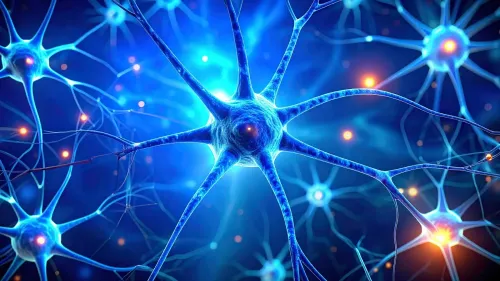Revolutionary Heart Disease Treatment with AI-Enhanced Adaptive Cardiac Devices: Insights

New Delhi, Jan 2 (NationPress) Adaptive cardiac devices are transforming the treatment landscape for heart disease through real-time monitoring and dynamically adjusting therapy, according to a recent report.
The report compiled by GlobalData, a prominent data and analytics firm, indicates that these devices deliver continuous and accurate interventions that result in enhanced patient outcomes. This marks a significant shift towards more effective and responsive management of heart disease.
Unlike traditional devices such as pacemakers that produce a steady output, the innovative adaptive cardiac technologies utilize artificial intelligence (AI) to assess heart activity. These adaptive technologies modify treatment based on variations in cardiac rhythms, leading to a more personalized healthcare approach.
This guarantees that therapy is perfectly aligned with a patient's changing condition, offering 24/7 care and enhanced health results.
GlobalData forecasts that the cardiovascular devices market will expand with a compound annual growth rate (CAGR) of 5.20 percent, projecting growth from $84.8 billion in 2023 to $140 billion in 2033.
This growth underscores the rising demand for sophisticated diagnostic and therapeutic tools specifically designed for cardiac care.
“The cardiovascular devices market is experiencing rapid growth and diversification. AI-powered solutions illustrate the industry's transition towards precision medicine, in alignment with regulatory entities like the US Food and Drug Administration (FDA) that prioritize innovative strategies to enhance outcomes in cardiovascular disease management,” stated Cynthia Stinchcombe, Medical Devices Analyst at GlobalData.
The report anticipates that breakthroughs in cardiac care, along with new therapies, will revolutionize the field, offering new solutions for millions affected by heart disease worldwide.
“The integration of advanced technologies in cardiovascular care highlights the vital role of innovation in contemporary healthcare. With these sophisticated systems, we are progressing towards more customized and effective treatment strategies for heart conditions, thereby improving both quality of life and clinical results,” Stinchcombe added.
The report also emphasizes the collaboration between wearable cardiac monitors—like ECG-enabled smartwatches—and AI-driven devices.
Wearables enable continuous monitoring outside clinical settings, while adaptive implants provide accurate therapeutic interventions, forming a comprehensive framework for cardiac health management.
“As cardiovascular diseases persist as a major global health challenge, the advancements we are witnessing offer renewed optimism. Emerging technologies are essential in broadening diagnostic and therapeutic capabilities. With the FDA’s endorsement of AI-driven medical devices, these innovations are poised to redefine cardiac care, delivering transformative advantages to patients around the globe,” Stinchcombe concluded.









